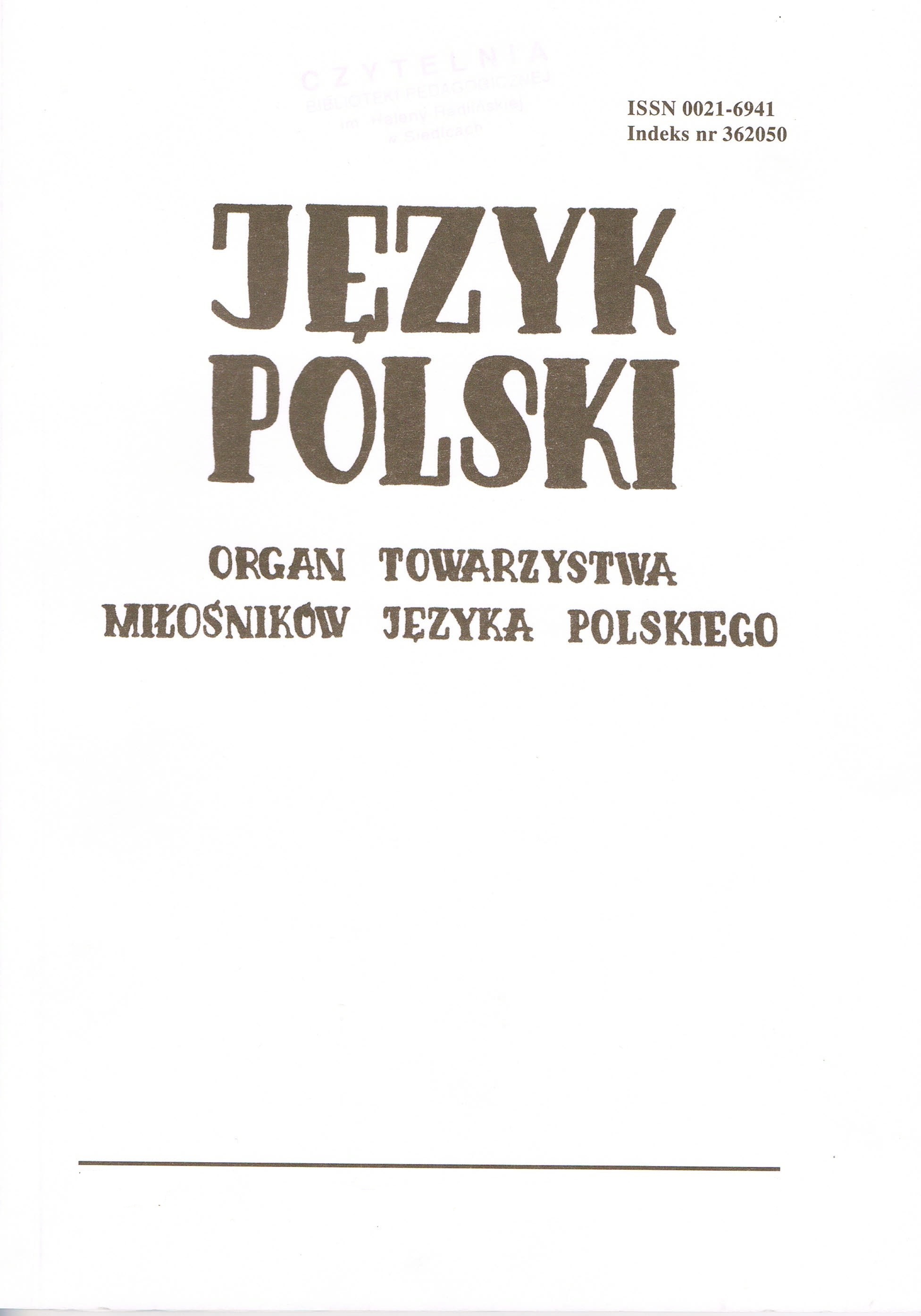Uwarunkowania alternacji celownika i frazy przyimkowej z "dla" w polszczyźnie południowokresowej na przykładzie gwary Hreczan na Podolu
On alternation between the dative case and dla (Eng. for) prepositional phrase in Polish language of the South-Eastern Borderlands (Kresy Południowe)
Author(s): Ewa DzięgielSubject(s): Language and Literature Studies
Published by: Towarzystwo Miłośników Języka Polskiego
Keywords: Polish language in the East Borderland; dative; variation in using the dative case and the "dla"
Summary/Abstract: The phenomenon of morphosyntactic variation in nominal groups was undertaken in the linguistic literature in respect of the theory of variant, the causes of language evolution or linguistic norm in Standard Polish. Regional Polish language in the East Borderland (Kresy) provides an interesting text corpus showing the variation in using the dative case and the "dla" (Eng. for) prepositional phrase for a much broader range than in today's Standard Polish, e.g. powiedzieć dla (Prp) księdza (Gen) - SP powiedzieć księdzu (Dat) 'to tell priest'; spodobali się dla (Prp) was (Gen) - SP spodobali się wam (Dat) 'you liked them'; dla (Prp) mnie (Gen) pomagała - SP mnie (Dat) pomagała 'she helped me'. The subject of the article is to analyse the determinants of alternation (variation) between the dative case and dla (Eng. for) prepositional phrase on the basis of homogeneous language material, which is 120 pages of text, recorded in one of Polish dialects in Khmelnytsky district in Ukraine. The aim was to investigate the possible functional and semantic limitations of the variants in the dialect. Statement of the frequency of the competing morphosyntactic markings in the text corpus has shown that the prepositional phrase does not eliminate the dative case in any of analysed functions. The analysis demonstrates that alternation includes all the functions of the dative case, both the dativus commodi and the dativus incommodi. In particular, this second context illustrates the specific usage of dla prepositional phrase, e.g. zniszczyć meble dla (Prp) kogoś (Gen), which are not acceptable as dativus incommodi in Standard Polish (SP zniszczyć meble komuś (Dat) 'destroy one's furniture').
Journal: Język Polski
- Issue Year: 2011
- Issue No: 5
- Page Range: 343-351
- Page Count: 9
- Language: Polish

